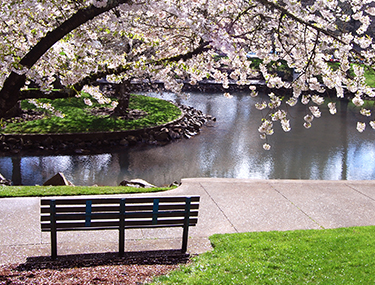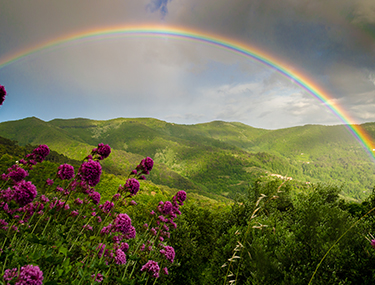Grief and Loss
-Vicki Harrison
Vicki Harrison captures well the experience of grief. It is not a neat 5 stage journey. Even though the markers of shock and denial, bargaining, anger, depression, and acceptance can be helpful. The felt experience is closer to the ebbing and flowing of the ocean.
After the death of a loved one your world is turned upside down.
You find yourself disoriented; walking around in a bewildering fog. Even small tasks seem overwhelming. Time and life have stopped, yet the world goes on.
In fact, you have so many details to take care of. Family and friends want to help, but don’t always know what to say. Hearing things like “time will heal,” or “they’re in a better place” do not help at all.
You are expected to return to work after a few days.
Your coworkers tell you how brave and strong you are. You hide your tears and put on a smile. Maybe you have been told that showing your emotions is a sign of weakness. You don’t always know what you are feeling, but wish someone would at least ask. You wonder if this is the way it is always going to be.
One night after work you find an internet post about grief and loss. You are relieved that it says that grief is a normal response to losing someone significant. There is no right or wrong way to grieve. Everyone goes through it in their own way and time frame.
You read that grief is often connected to the death of someone close, but can be experienced from the loss of a job, relationship, home, our health or many other things.
It says experiencing and expressing your feelings is not a sign of weakness, but actually takes strength and courage.
Allowing yourself to walk through the seasons of grief with all the messy feelings is important.
You will make it through to the other shore and fully re-engaging with your life.
You don’t need to go it alone. I can help.
I provide a safe place outside of your daily life. I will invite you to share your story and connection with your loved one. We will follow the movements of grieving which flow in and out of one another.
WHAT’S LOST?
The answer to this question might seem obvious. I lost my husband, wife, partner, child, parent friend, pet, house. But as you unpack the loss you find many layers. You lost your sense of security. Who are you now? Your dreams, hopes and plans have changed. Gone are the shared memories.
It will take time to honor and feel the many aspects of your loss. This is the work of grieving.


WHAT’S LEFT?
The second movement of grief is taking the time to become aware of what is still here in your life.
No need to rush too quickly into the pressure of needing to move on. This is a time of reconnection; not forgetting what is lost, but remembering that you and your life are still here.
WHAT’S POSSIBLE?
The third movement is taking the time to discover what’s possible now.
Let this flow naturally. This is the time to reimagine your life – to connect to what has meaning for you now.
This does not mean you forget about your loss, but their memory becomes woven into the continuing fabric of your life.
I can help and support you through this process.
Contact me for a free 20-minute phone consultation. 510-644-4227

